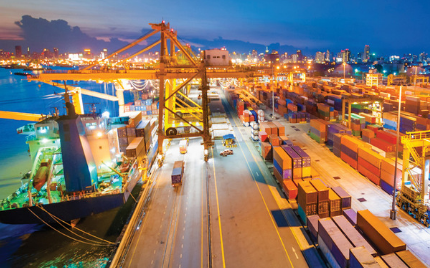Any issue related to a flight is, at best, scary. Flights after all, cannot be landed immediately like you can do with your car by turning off the ignition. Add to that the fact that most commercial planes carry over a hundred people, even the slightest issue poses grave threats. This said, it is not easy to recall a set of aircrafts to fix an issue. They simply are spread across the globe and have schedules fixed months ahead which makes recalls very complex. Plus, certain small airline operators usually have only a single model in their entire fleet and recalling them will affect entire businesses until repair is complete. However, planes do get recalled from time to time to fix some emergency
issues, often developed in the aftermath of a crash. Don’t be surprised if Boeing features in most of the recall cases given below- They are the largest manufacturer in the world.
1. Boeing Recall – Dreamliner (2016)
A Japan Airlines 737 flight had a mid-air scare- one of its engines had failed. The pilot managed to land the flight safely with the remaining engine, but the alarm had been raised. The fan blades rubbed with the fan case causing engine vibration, as a result ice shed from the blades. This could potentially lead to one or both engines ceasing. As the issue came to the fore, Boeing had issued recalls of more than 200 Dreamliner planes worldwide, marking one of the biggest recalls.
The issue is the result of environmental conditions not being accounted for adequately accounted for. The issue is shocking as such conditions are prevalent in many airspaces and this comes from Boeing. More appalling is the fact that the aircraft has been plagued by engine defects extending lasting till date. The recall came at the direction of USA’s FAA. A timeframe of 150 days was given to fix all the affected planes. The cost incurred related to the fix is not known though.
Courtesy: Express-News
2. Boeing Recall - Max 737 (2019)
This is an ongoing recall and is probably the biggest in airline history. It is not even a voluntary recall as most airlines around the world have grounded the flight despite Boeing’s repeated claims that the flight is safe- a statement they have nearly revoked recently. It was preceded by two of the worst aircraft disasters in recent memory, with 357 casualties combined in the two incidents over the last 6 months. The planes have received no orders in the past month with a number of cancellations as well out of the 5000 planes ordered for the next half a dozen years. This, apart from over 350 operating planes that were grounded globally. Boeing has been working fervently for a fix and to save its face as the grounding threatens to extend beyond a few months initially anticipated.
The accidents happened, presumably, as a result of a faulty software/sensor combination which provides erroneous data about the flight position and forces lift/dive commands, overriding manual operation of the pilots. The newly added anti-stall software, MCAS is the one responsible for this. It is learned that Boeing fast-tracked the pilot training process and only engaged in training and notices after the first crash. Boeing is accused of a faulty software as well as for promoting an unsafe product. Claims of having rushed design, production and training in the part of Boeing and FAA have been made in light of Boeing trying to match rival Airbus’s new economical flight. Overall, the issue is set to cost several billion dollars for Boeing as well as the airlines operating the Max aircrafts as the recall is set to extend for months. Combined with flights being cancelled, thousands of affected customers and cancelled orders and uncertain future of the aircraft, this recall could cost potentially over a $100bn all told.
Courtesy: Hindustan Times | Japan Times | USA Today
3. Airbus Recall - A320neo, 2018
Airbus A320 neo is one of the top selling models for the company. However, it has come under the scanner a number of times in the last few months, especially in India, as its being operated mostly by IndiGo in Indian Domestic flights. Engine issues led to dozens of flights experiencing turbulence and flight cancellations. This prompted reviews by both Indian and European agencies who force grounded the fleets. More than a dozen of these flights was grounded on safety concerns.
The flights have Pratt and Whitney, PW1100 engines, and IndiGo and Go Air were the airlines affected by this recall. The unavailability of parts for repairs also compounded the issue and the estimated loss for the two airlines is of the order of $50mn. Other airlines operating the flights haven’t grounded them as the engines are of a different model, but are awaiting fixes too. The compensation from Airbus is not clear though and the issue should not affect the manufacturer directly as the engines are outsourced and manufactured by other firms. It though brings into question the quality of suppliers in a key industry such as Aviation.
Courtesy: Rediff | India Today










